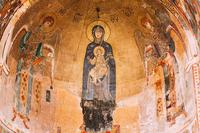Public education on religion in Georgia presents a unique intersection of history, culture, and education policies. This article delves into the intricacies of how religion is integrated into the public education system in Georgia, a country with a rich religious heritage and a complex socio-political landscape.
The Context of Religious Education in Georgia
Georgia, located at the crossroads of Eastern Europe and Western Asia, is a country with deep-rooted religious traditions. Predominantly Orthodox Christian, with significant Muslim, Armenian Apostolic, and Roman Catholic communities, Georgia's religious tapestry is diverse. The integration of religious education in public schools reflects this diversity, yet also navigates the challenges of maintaining secularism in education.
Legal Framework and Educational Policies
The Georgian Constitution guarantees freedom of religion and the separation of church and state. In line with this, the educational system is primarily secular. However, religion as a subject has been introduced in public schools, not to promote any specific faith but to offer a broader understanding of religious histories and beliefs. This approach aligns with Georgia's commitment to fostering religious tolerance and multicultural understanding among its youth.
Religion in the School Curriculum
In public schools, religion is taught from an academic perspective. The curriculum covers a range of religious beliefs, including Christianity, Islam, Judaism, and others, focusing on their historical development, key tenets, and cultural significance. The approach is factual and neutral, aiming to educate rather than indoctrinate.
Public Reception and Challenges
The introduction of religious education in Georgian public schools has been met with mixed reactions. Some see it as a necessary step towards a more comprehensive education, while others express concerns about maintaining secularism in public education. The government and educational authorities continue to navigate these complexities, striving to strike a balance between religious education and secular principles.
Comparative Perspective: Georgia and Global Trends
Globally, the approach to religious education in public schools varies significantly. Georgia's model, which emphasizes academic study over religious practice, aligns with broader trends in promoting religious literacy and multicultural understanding. This approach distinguishes Georgia in the international context, offering a unique case study in balancing religious diversity with secular education.
Resources and Further Reading
For those interested in exploring this topic further, several authoritative sources provide detailed insights. These include reports by the Georgian Ministry of Education, academic studies on religious education in post-Soviet states, and analyses by international organizations on education and religious freedom.
In summary, public education on religion in Georgia is a reflection of the country's commitment to religious tolerance and secularism. The educational policies and curriculum aim to provide students with a broad understanding of various religions, fostering a society that respects diversity. For travelers, this aspect of Georgian culture offers an intriguing angle to explore, enriching their experience of the country's rich historical and cultural landscape.

 Theological Schools in Georgia
Theological Schools in Georgia
 Religious Studies in Georgian Universities
Religious Studies in Georgian Universities




